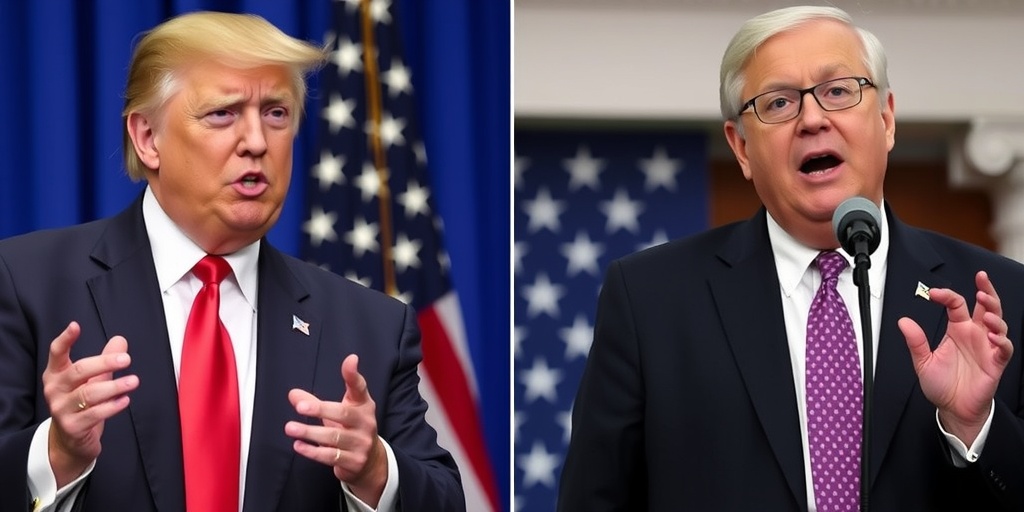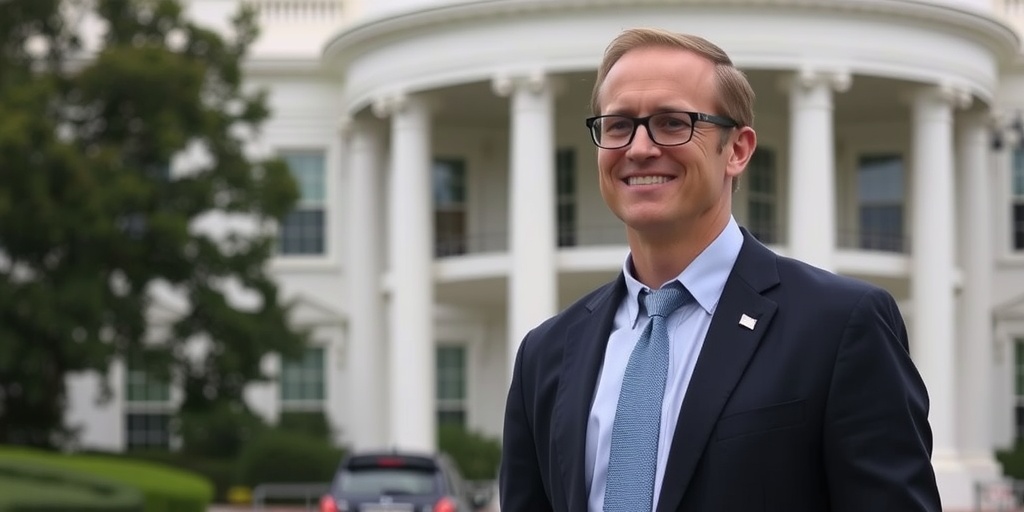Now Reading: Republicans Divided on Medicaid Funding for Trump’s Agenda
-
01
Republicans Divided on Medicaid Funding for Trump’s Agenda
Republicans Divided on Medicaid Funding for Trump’s Agenda

Title: Tensions Rise Among Republicans Over Proposed Medicaid Cuts in Budget Plan
When it comes to Republican lawmakers who might diverge from party lines on pivotal legislation, Senator Jerry Moran’s name typically does not come to mind. However, a recent speech from the third-term senator from Kansas marked a noteworthy exception. Moran took to the Senate floor last week to deliver a pointed warning regarding the potential ramifications of the budget plan his party was poised to approve.
Moran expressed strong concerns about the budget proposal’s implications for Medicaid, emphasizing that deep cuts could jeopardize struggling rural hospitals and, by extension, threaten the future of rural America. "I want my colleagues to understand the imperative of not causing harm to those in desperate need of healthcare in Kansas and across the country," he stated, highlighting the link between healthcare access and the well-being of rural communities.
His remarks come amidst a complicated internal struggle within the Republican Party over the direction of their budgetary priorities, particularly with respect to Medicaid. Speaker of the House Mike Johnson recently managed to quell dissent among conservative Republicans and advance a budget blueprint aligned with former President Donald Trump’s agenda, which includes significant spending and tax cuts. Johnson assured House conservatives that their Senate counterparts would comply with aggressive cuts totaling $1.5 trillion over the next decade.
Nevertheless, many GOP senators appear reluctant to endorse the kind of drastic cuts championed by their House colleagues. Concerns have surfaced within the Senate regarding measures such as the complete repeal of President Biden’s Inflation Reduction Act and restrictions on food stamp access. However, the prospect of cutting Medicaid has drawn the strongest pushback. Notably, Senator Josh Hawley of Missouri stood firm against any cuts to Medicaid benefits, asserting, "I will not vote for Medicaid benefit cuts. If they want my support, then Medicaid cuts cannot be part of this plan."
Despite Republican leaders’ assurances that they have no intentions of slashing Medicaid or similar programs, skepticism remains high. House Speaker Johnson reiterated that Trump would not support any reductions to Social Security, Medicare, or Medicaid benefits. He contended, "We intend to protect the benefits that everyone is legally entitled to." However, given the ambitious $1.5 trillion cut target, GOP members acknowledge that finding such savings without touching Medicaid would be nearly impossible. Johnson suggested that the party might explore implementing work requirements or rooting out waste, fraud, and abuse, but many believe these measures are insufficient to meet budgetary goals.
The internal conflict among GOP leaders regarding Medicaid surfaced prominently when the Senate pushed through a compromise budget plan that included a directive for the committee overseeing Medicaid to identify $880 billion in reductions. This resolution faced initial resistance from several Republican senators, including Susan Collins of Maine, who voiced her concerns regarding significant Medicaid cuts and their potential adverse effects on her state’s healthcare system. "The House instruction for $880 billion in cuts is deeply troubling," Collins remarked, emphasizing the potential harm to the most vulnerable populations in her state.
Collins further elaborated, stating, "I cannot support cuts affecting low-income families, disabled individuals, or low-income seniors. I would consider imposing work requirements for able-bodied individuals without preschool children, but I cannot support broader cuts." Her sentiments reflect a growing unease among senators from rural and traditionally conservative regions who understand the critical role Medicaid plays in providing healthcare access to their constituents.
Senator Lisa Murkowski of Alaska echoed Collins’ concerns, characterizing cuts to Medicaid as disastrous for her state. Acknowledging her apprehensions about the budget resolution’s instruction for significant cuts, Murkowski confirmed her stance that any final product falling short on these issues would lose her support.
As the budget debates unfolded, the House experienced a similar dynamic. House conservatives initially resisted a compromise that required only minor reductions of $4 billion over a decade, far less than the cuts previously outlined. Representative Chip Roy of Texas, a prominent holdout, eventually agreed to support the compromise after receiving commitments from Trump and party leaders that substantial reductions in entitlement programs, including Medicaid, would feature in the final legislation.
A recent poll conducted by Fabrizio Ward, which represents Trump’s campaign pollsters, found broad disapproval of cutting Medicaid among the populace, even among Trump supporters. This indicates a potential political peril for Republicans as they grapple with internal divisions and the preferences of their constituents regarding healthcare programs.
In light of the ongoing discussions, Senator Jim Justice of West Virginia, where a sizable portion of the population relies on Medicaid, expressed apprehension about his party’s proposals. While he indicated openness to work requirements, he sought further clarification regarding restrictions on Medicaid expansion.
Amidst this political turmoil, Senator Moran continued to advocate for legislative action that would secure healthcare access for rural communities. He highlighted the dire circumstances faced by rural hospitals in Kansas, noting that the average operating margin for such hospitals was a negative 7 percent, with eight closures occurring over the past decade. "My goal is to secure a future for rural communities," he stated. "Without access to healthcare, that future is in jeopardy."
As debates progress within both chambers of Congress, the conflict between fiscal conservatism and constituent healthcare needs continues to illustrate the complexities facing Republicans as they navigate legislative priorities in 2025.
Stay Informed With the Latest & Most Important News
Previous Post
Next Post
-
 01New technology breakthrough has everyone talking right now
01New technology breakthrough has everyone talking right now -
 02Unbelievable life hack everyone needs to try today
02Unbelievable life hack everyone needs to try today -
 03Fascinating discovery found buried deep beneath the ocean
03Fascinating discovery found buried deep beneath the ocean -
 04Man invents genius device that solves everyday problems
04Man invents genius device that solves everyday problems -
 05Shocking discovery that changes what we know forever
05Shocking discovery that changes what we know forever -
 06Internet goes wild over celebrity’s unexpected fashion choice
06Internet goes wild over celebrity’s unexpected fashion choice -
 07Rare animal sighting stuns scientists and wildlife lovers
07Rare animal sighting stuns scientists and wildlife lovers




















